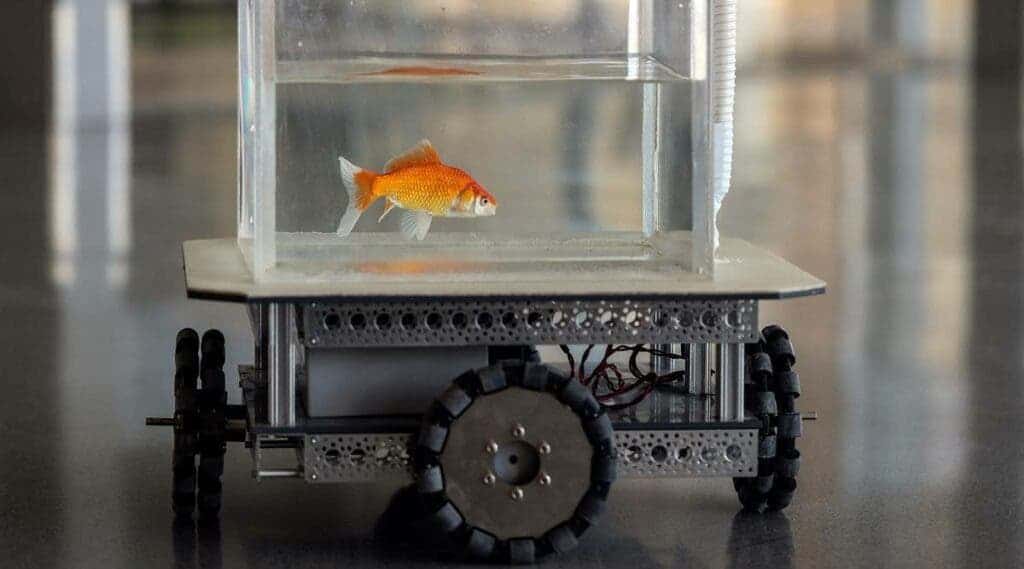Imagine a goldfish swimming on a tank on wheels as it moves deliberately from one side of a room to the other. No, it’s not a sci-fi movie, nor a bizarre comedy. It’s actually a serious animal behavior and cognitive ability experiment. Researchers trained several goldfish to run a robotic vehicle so to explore whether the species could navigate on land — and it turns out, they’re not too bad.

It’s not the first time we’ve seen something like this. Back in 2019, researchers at the University of Richmond wanted to see what effect the environment a rat was raised in had on its capability to learn new tasks. To do so, the team came up with something more tricky than navigating a maze. They successfully taught rats how to drive.
In a new study, researchers from Ben-Gurion University created a water tank on wheels to see whether goldfish can learn to navigate on dry land. The experiment wanted to test whether a fish’s navigation skills are universal or limited. Using navigational skills in unfamiliar settings is known as domain transfer methodology, and it’s an important cognitive ability.
“The study hints that navigational ability is universal rather than specific to the environment. Second, it shows that goldfish have the cognitive ability to learn a complex task in an environment completely unlike the one they evolved in,” says Shachar Givon, a PhD student and the study’s lead author, said in a statement.
Is that fish driving?
The researchers used a fish-operated vehicle (FOV) with a special software and a motion-sensing camera so to monitor where the fish is swimming in the watery tank on wheels. An algorithm moves the tank based on the camera’s signaling, allowing the fish to drive the vehicle. The algorithm is powered by a program running on an open-source microcontroller called Raspberry Pi.
Before tests could begin, the researchers first had to teach the goldfish how to drive. Six fish were enrolled in a driving school and were subject to multiple 30-minute sessions. The goldfish were tasked with moving the vehicle toward a visual target – a pink-colored mark on the wall of the experiment room – visible through the clear sides of the tank.
The movement of the fish and its location was translated into instructions for the FOV, allowing it to move left, right, forward or backward. The fish had to face outside the tank in the direction it was moving towards for the vehicle to move in a specific direction. This means that if the fish was in the middle of the tank, no movement happened.
Once the driving school was completed, the researchers were ready to officially test the goldfish navigational skills. In order to check if the fish were actually navigating to the targets and not just memorizing movements, the researchers changed the starting position of the vehicle and also incorporated decoy targets in different colors.
All the six fish that participated in the experiment drove toward the visual target, even from different angles – which suggests the fishes understand the world around them. All fish also improved as they repeated the task. This means that the fish can learn from their environment and make any necessary changes, the researchers argued. In other words, this experiment just taught us a new thing about the cognitive abilities of fish.
“The fish were tasked to “drive” the FOV towards a visual target in the terrestrial environment, which was observable through the walls of the tank, and indeed were able to operate the vehicle, explore the new environment, and reach the target regardless of the starting point, all while avoiding dead-ends and correcting location,” the researchers wrote.
The study was published in the journal Behavioral Brain Research.









